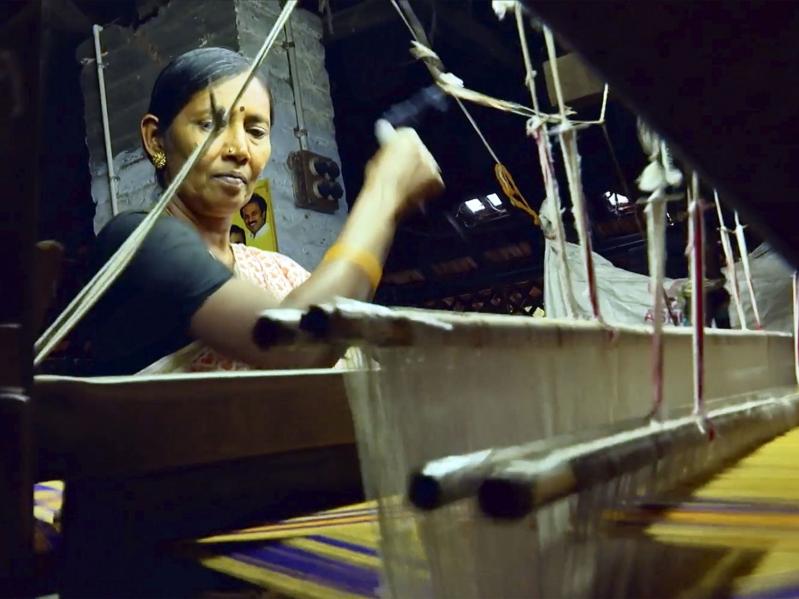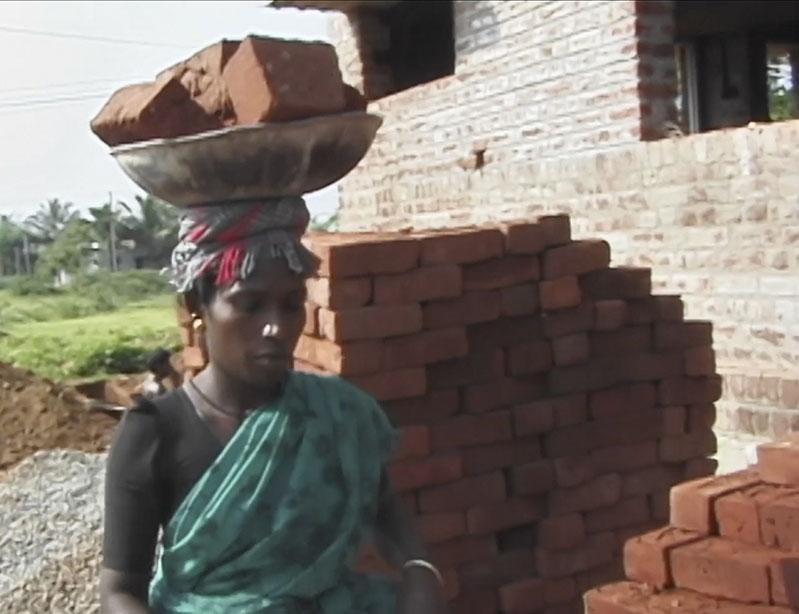“Dindigul Diaries,” a documentary that follows the lives of four women from the South Indian state of Tamil Nadu over a period of 23 years, had its East End premiere at the Sag Harbor Cinema in August. The path that led Annette Danto, its director and a part-time Springs resident, to make a film in a remote rural area of the Indian subcontinent is both logical and coincidental.
Logical because, as a licensed social worker with degrees from McGill and Columbia Universities, when working in the ‘80s in the Mount Sinai-Elmhurst Hospital’s Community Health Program, she first used video as part of a reality orientation program for people with Alzheimer’s disease.
“I was very excited about video as something that could have applications in home care and with nurse’s training. That was how I entered into the use of media,” she said recently.
Since then, starting in 1988, she has directed and/or produced some 20 documentaries and been a professor in Brooklyn College’s film department since 1997 and its chairwoman since 2022. She is also the senior editor and co-author of “Think/Point/Shoot: Media Ethics, Technology and Global Change,” which was published by Routledge in 2016.
Ms. Danto grew up on Long Island in a family in which the arts were important. Her mother was a concert pianist, and her father was an accomplished classical operatic tenor, and theirs was “a home filled with music.” It was also a family that placed a premium on education, where “if you want to learn anything, you go to school and get another degree.”
With one master’s degree already, it was her discovery of video that led her to New York University’s Tisch School of the Arts, where she earned an M.F.A. Her time there not only reinforced the importance of listening, which she had learned through social work, it also exposed her to the physics and aesthetics of sound.
“I got very excited about audio engineering — different kinds of microphones, different types of recording devices.” While at N.Y.U., she found work doing sound recording on commercials and music videos in order to make a living.
N.Y.U. is where coincidence came into play.
One of her classmates there was M. Night Shyamalan, who went on to direct the 1999 film “The Sixth Sense,” a critically acclaimed box office hit that launched his long and successful career.
It was 10 years before his breakthrough that Mr. Shyamalan asked Ms. Danto to go with him to India to be the sound engineer on his first feature film, “Praying With Anger.” The shoot took place in Tamil Nadu, in the city of Chennai. “I was there for months working on a big feature film where I was the only female on an all-South Indian crew. It was really an exciting experience.”
Back in New York she continued to do audio engineering on features and commercials and landed an adjunct position teaching an undergraduate sound class at N.Y.U.
But the impulse to make her own films was strong. “I continued to want to figure out how can I create films that are very purposeful, that will potentially have an impact or do something to address certain stereotypes people might have.” However, in the early ‘90s, before the digital explosion, both shooting film and post-production were prohibitively expensive for an independent artist.
She connected with the Fulbright Scholars program in the hope of figuring out how and where to bridge her interests in purposeful media and documentary production, women’s issues and health care, and the use of media as a tool for creating understanding between people of different cultures.
India had piqued her interest not only because of her experience there but also because “it has a very rich use of creative media in community-based education initiatives.” As a result, street theater, song, and dance have always been used to communicate with rural populations with higher rates of illiteracy.
In order to become a Fulbright Scholar, she had to find a sponsoring organization in a host country. She found two places in the world where people were using creative media to address social issues in their communities: South Africa, where street theater was being used to address H.I.V./AIDS, and Ambathurai in Tamil Nadu, where the Gandhigram Rural Institute was helping foster rural development from the grassroots up.
Ms. Danto was excited to discover the institute, and learned that it had no video technology. “I had access to a lot of equipment through Brooklyn College, and I proposed to Fulbright bringing video equipment to the Dindigul district and collaborating on a series of short films that could then be used as part of their community education initiatives. The institute would then get their own equipment and continue doing it.”
She got the Fulbright. Dindigul is a district in Tamil Nadu whose central city is surrounded by hundreds of small villages. Once there, she worked with the institute to find community members willing to be part of a documentary about the challenges encountered by villagers there.
Four women, all of whom faced many hardships, agreed to share their stories, and filming took place in 2001. Rajummal ekes out a living working on construction sites, carrying piles of bricks in metal containers on her head. Viswasam married at 14 and stays with her husband despite his abusive behavior. Sumathi works in a weaving factory, while Shanti and her husband own a modest snack bar.
“I’ve always liked and been drawn to verite documentaries,” Ms. Danto said, and “Dindigul Diaries” reflects that, avoiding any kind of voiceover or added interpretive content. As a result, like the purest ethnographic filmmaking, the film immerses the viewer in the lives and worlds of its subjects.
Financial hardship, marital infidelity, suicide, drought, and arduous labor are among the obstacles faced by the women, who are making every effort to ensure their children receive better educations, and more opportunities, than they had. Their strength in the face of adversity is remarkable.
The footage from 2001 became part of a stand-alone 40-minute documentary called “The Neverending Path,” which played in film festivals and entered the collections of libraries and universities.

Starting in 2004 and continuing until 2015, Ms. Danto ran a program with the Gandhigram Rural Institute that brought Indian and American students together in India to work on short films. “Over the years, roughly 500 or 600 students went over and had that experience, and many of them incorporated that into their career paths.”
In 2011 she made a 25-minute documentary titled “Reflections on Media Ethics,” which addressed the topic of morals, ethics, and values, with an emphasis on the media industry. That led, in turn, to a CUNY-wide conference on global media ethics, and, in 2016, to the book “Think/Point/Shoot.”
“There were a lot of books on media ethics for people who study ethics, but there was nothing translating that material for people dealing with the nuts and bolts of putting together documentaries. So the book was very much designed for them.”
In 2016 Ms. Danto received a second Fulbright Scholarship to return to Dindigul and follow up with the same families and villages, and “Dindigul Diaries” brings the viewer up to date with the lives of the four women. Viswasam now toils in construction, while Sumathi still works as a weaver. Shanti and her husband upsized, opening a brick-and-mortar convenience store, while Rajummal sells flowers door to door.

While the film just missed the deadlines for the Hamptons International Film Festival and Hamptons Doc Fest, Ms. Danto has her eye on 2025. Meanwhile, she will return to India with “Dindigul Diaries” for a screening in Dindigul in January and in several other cities over the next six months.
Ms. Danto bought her house in Springs in 2010, but she spent much of the ‘90s renting at Salters Cottages on Gerard Drive in that hamlet. “It’s been great having people out here and giving them a sense of Springs, the diversity of the population, and the communities out here. It’s a special place and I’m very happy to call it home.”




